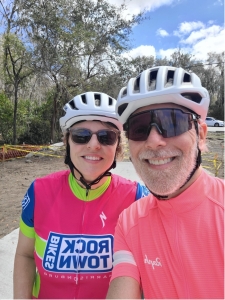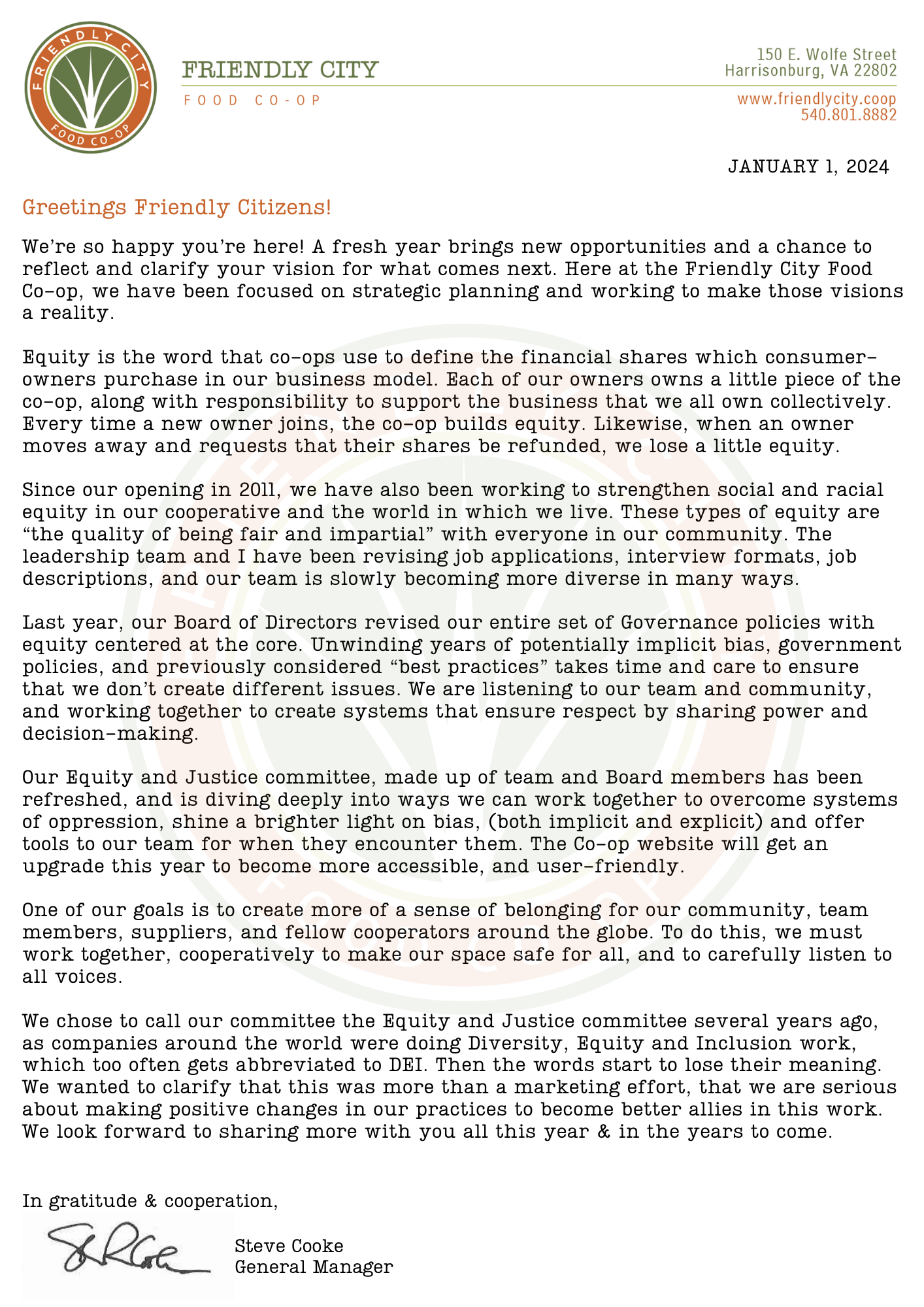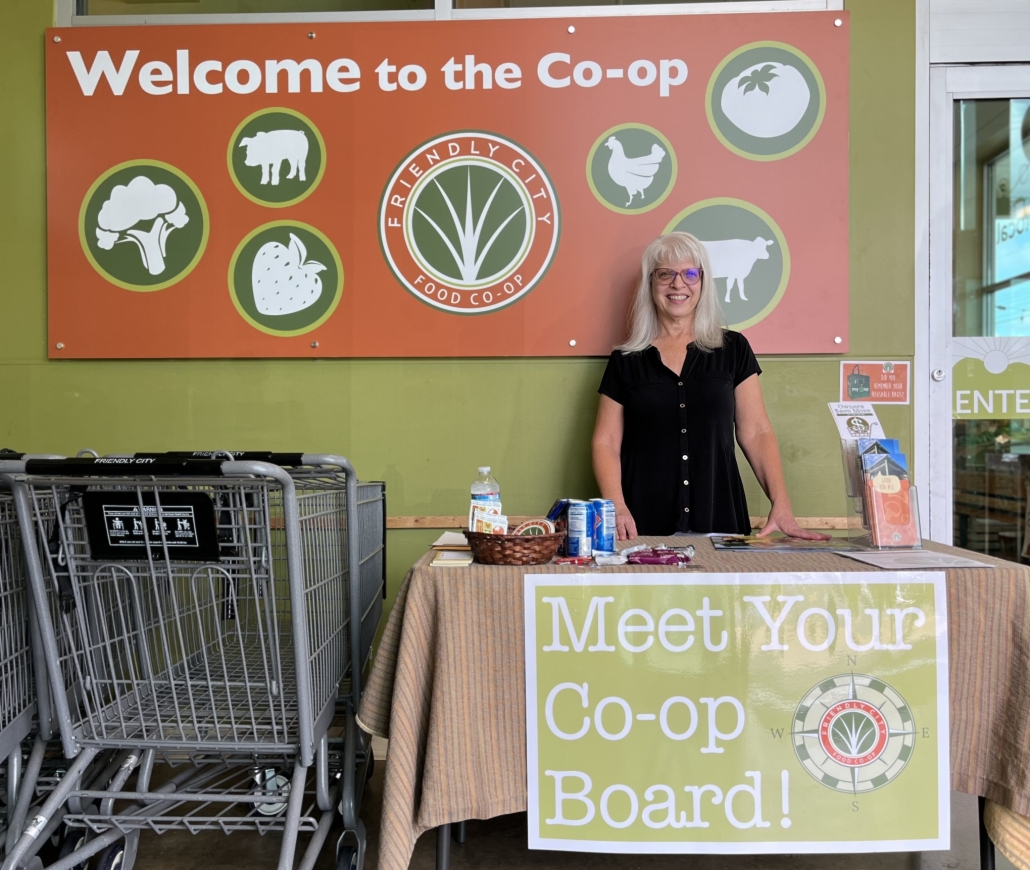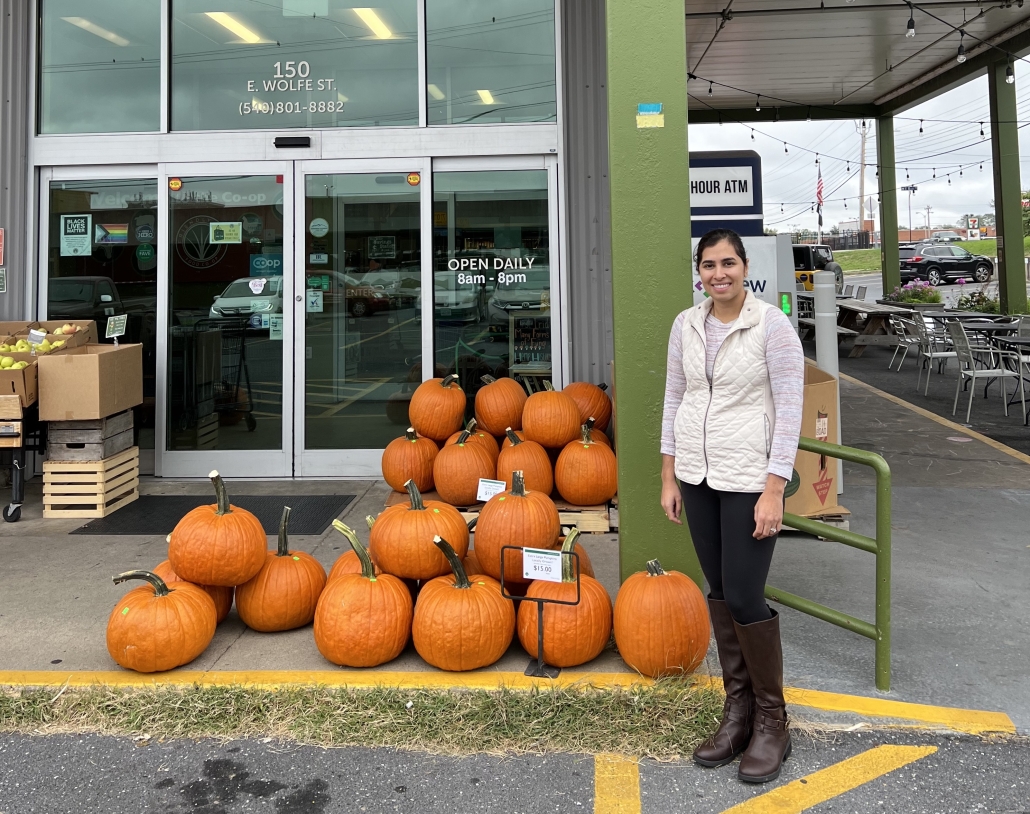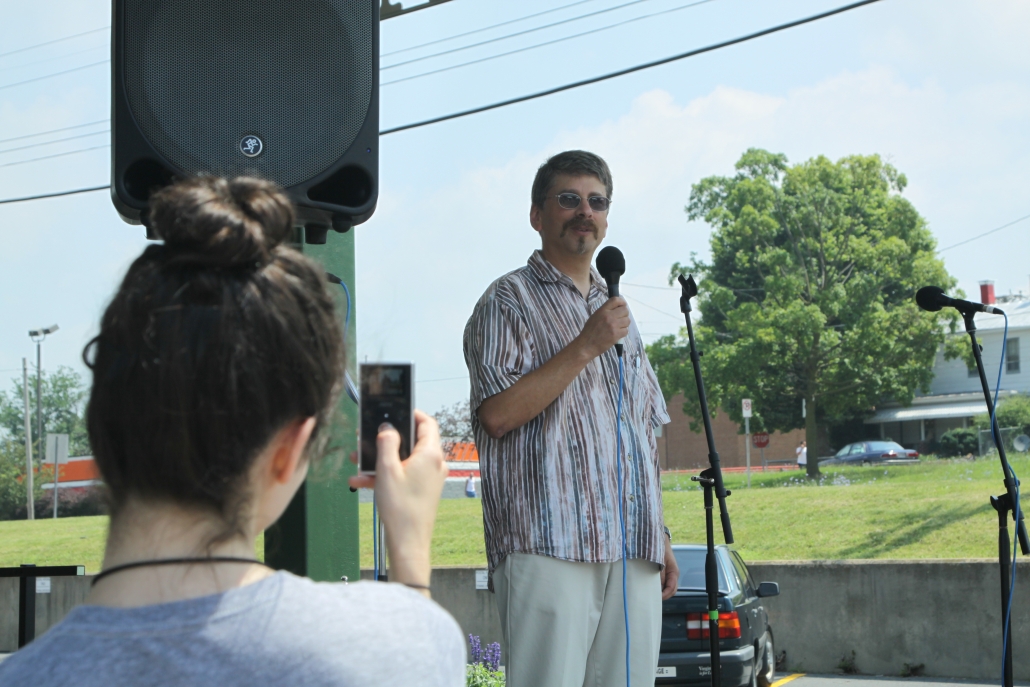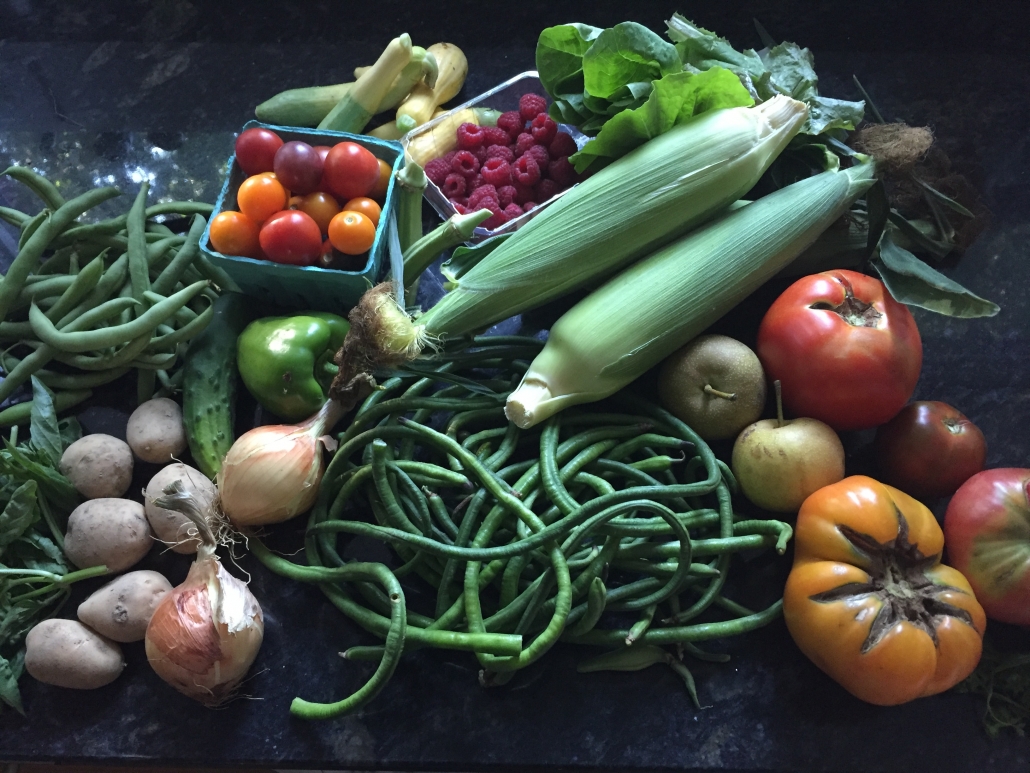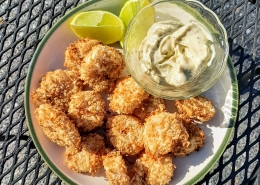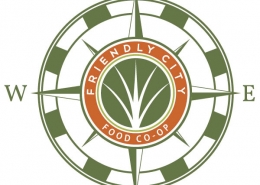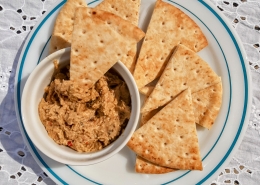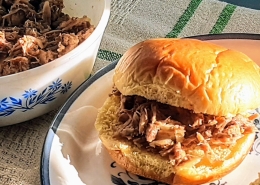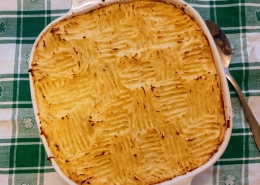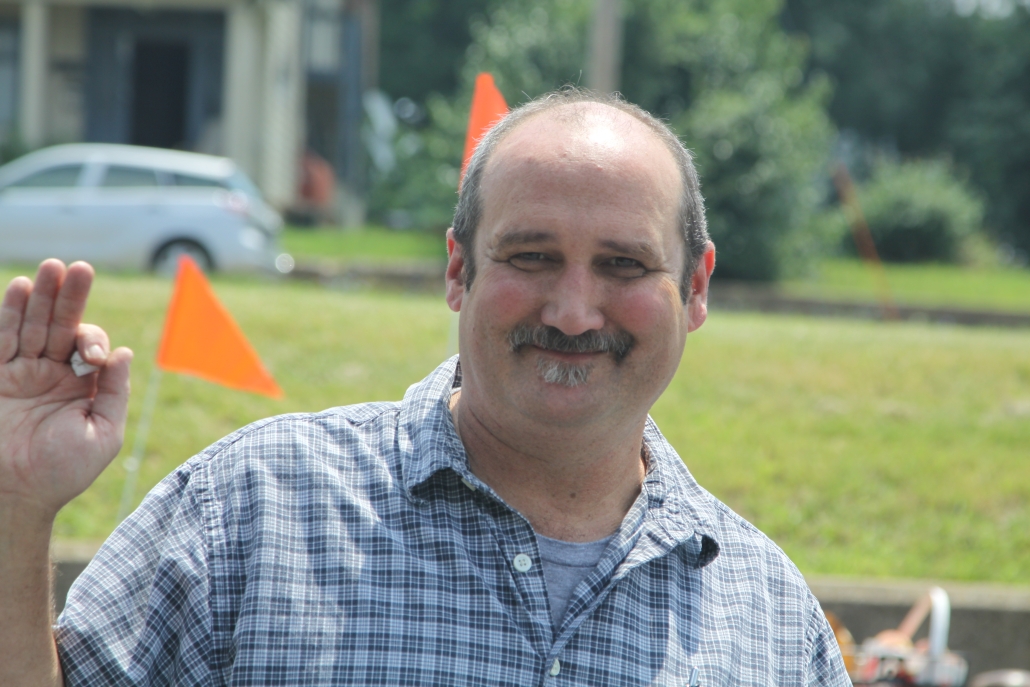
Steve Cooke, General Manager at our Grand Opening in 2011
A Co-op Dozen- 12 Years in the Blink of an Eye
Steve Cooke, General Manager
2011
Friendly City opened its doors on Monday, June 6th at 4 pm, as the Radical Roots CSA was coming to set up for its first pickup of season. Within 20 minutes, the bike rack was full ! Our first full week of sales (6/1 -6/18) generated $36,734 from 2001 customers. The Official Grand Opening occurred on July 9th. The Steel Wheels performed as our headline musical act. We had 1,350 owner households and just 18 employees.
In September of that year, nationally known Fermentation author, Sandor Katz, visited and gave our first (non- how to join the co-op class) in the middle of our sales floor to a large crowd.
2014
Not quite 3 years after opening, the Co-op Board approved a renovation project pending financing at the May board meeting. The planning of an owner loan campaign resulted in a year end decision to move ahead with the project.
In December, we launched a New Year’s Resolution Boost, helping our shoppers kick start their year off on the right foot with local foods, green products, and healthier traditions. This program has continued every year since.
2015
Our first sales floor renovation was completed by the end of March. We added a hot bar to complement the salad/soup bar, as well as a beer and wine department after hearing the continual requests since we first opened. The new beer and wine zone took the place of the coffee bar and pastries, which moved up closer to the check stands up front. We began the sublease of half of the former Blessed Sacrament food pantry to the Teeny Tiny Spice Co. who became a hyper-local vendor, literally behind the wall of our bulk foods and spices section. Sometimes when they were grinding, you could smell spices while you were buying them in the store. During the renovation we also added a Community Room, small office, and a Produce prep room and Grocery workspace.
2016
The first class in our new Community Room took place in January, it was a Seed Starting Class taught by Project GROWS.
Our Hot Food Bar debuted on Mardi Gras Day in February with a delicious Cajun Creole feast.
2017
We launched the Owner Rewards points based program. Every dollar spent earns 1 point. 100 points = $100 in reward. Minimum of 300 points ($3.00) to claim reward.
This year we also kicked off our “Round Up at Register” with shoppers rounding up their purchases to support the Harrisonburg Farmers Market’s SNAP Match program, so their customers using SNAP could get twice as much produce for their dollars. We were so excited by the SNAP matching program, that we were in the first batch of retail grocery participants to take part, starting our SNAP match a year and a half later. We continue to offer SNAP matching to this day, and customers who pay with EBT receive 50% off all fresh and frozen produce as well as fruit/veggie/herb seeds and plants.
2018
We began planning our next major expansion to finally inhabit the full footprint of our 10,000 square foot space as monthly sales started creeping over $400,000. We also upgraded our online owner application to a fillable .pdf with online payment option, bringing co-op ownership into the digital age!
2019
The owner loan campaign for our expansion continued throughout the year, as we simultaneously sought outside financing to boost our efforts. When we opened in 2011, banks and lenders were not willing to take a chance on a start-up community-owned enterprise with no one person responsible for the debt. Start-up funding was entirely locally sourced from owners, and one angel investor, who continues to support us.
We bought new green composting bins for our café area, rest rooms, break room, and a large one for loading dock, and started taking non-food compostables (hot bar/salad bar containers, soup/coffee cups/lids, compostable plasticware, paper towels, non-BPA register receipts) to Black Bear compost facility every two weeks.
Our Living Wage initiative launched on January 1, 2019.
2020
Owner loan campaign wrapped up early in the year with over $630, 000 and another $300,000 from our angel. LISC (Local Initiatives Support Corp.) loan for $1,150,000 closed on Tuesday, May 26th. And so, in the midst of a global pandemic, we had to decide whether to go ahead with the expansion project, or pause for a bit and see what happened. There was already talk of potential supply cost increases, and we had planned for a 9-month phased project working in closed off sections of the store while we maintained “normal” operations. Ultimately, we decides to go ahead with the project since sales would likely be off anyways due to the COVID-19 pandemic.
Demolition began on June 1st. The priority in Phase I the southwest corner, just south of current restrooms. This sped up the timeline for re-inhabiting the area for operations, thus growing our sales floor which allowed us to welcome more shoppers, and get the kitchen in full production sooner. Even with restrictions on number of customers allowed in the store at one time, and mask policies in place, sales continued to grow even during the project. The new palace of a kitchen, was ready to move in before year end, and work began on the back of the store – adding a produce prep area, new walk-ins and meat cases.
During this time we also scrambled to create an online ordering/curbside pick-up service. At first, it was just the basics, and relied heavily on what our shoppers remembered we had in the store. It got a lot of usage, even with its barebones functionality.
2021 (Expansion completed in March 2021)
The next phases of the expansion moved quickly and work was completed around the end of March. Reinforcements came in from UNFI, our primary distributor, and the NCG, our virtual co-op chain, to help us tear down the old shelving, build new, and re-merchandise our whole store in April. All in all, the project finished under budget and on time, remarkable really considering how much the supply chains broke down and construction costs soared in the coming year for other businesses. During the entirety of our expansion project we only had to close the store for two days! Sales growth finished up over 8% for the expansion/pandemic year; very much the opposite of our predictions.
CoGo, our online ordering platform, through which shoppers were able to see almost all of our available products, and not have to rely on memory to place orders, went live on October 1st.
2022
We continued following the mandates for COVID protocols, and attracted new customers looking for a shelter in the “storm.” Sales grew over 25% as we were able to lift customer counts and slowly return to a new normal. The hot food bar became a popular, quick, and healthier option for downtown lunch and dinner.
In May, we kicked off a new Recycled Jar program for our bulk foods department. Shoppers bring in their glass jars with matching lids, and we wash them in our commercial dishwasher then put them out for everyone to use for their bulk shopping.
On June 11th from 6 – 8 p.m. “What has gone before…1850 – Present” exhibit opened (Curated by Shenandoah Valley Black Heritage Project) – showing the history of the land on which our co-op store sits.
Café seating area opened to the public on June 1st, for first time since the expansion project completed and COVID precautions were scaled back.
This was the year our starting wage to became $15, and the wages for all other team members were adjusted to avoid wage compression. We received the Gold level certification from the Harrisonburg/Rockingham Living Wage campaign.
2023
Added bulk non-food liquids to our bulk department to help our shoppers with other ways to reduce packaging in their lives.
In January, our kitchen started offering a Sunday brunch with an ever expanding, and delicious menu.
Five small groups of team members have been meeting regularly developing a 3-year Strategic Plan that is “True to our Roots, feeding our soil to strengthen our systems to prepare for dreaming about what comes next!” Stay tuned for more details.
Now we are celebrating our 12th Birthday and we couldn’t have made it to 12 years without our amazing shoppers, friendly team, and vibrant local community! Cheers to 12 years, and many more to come.

